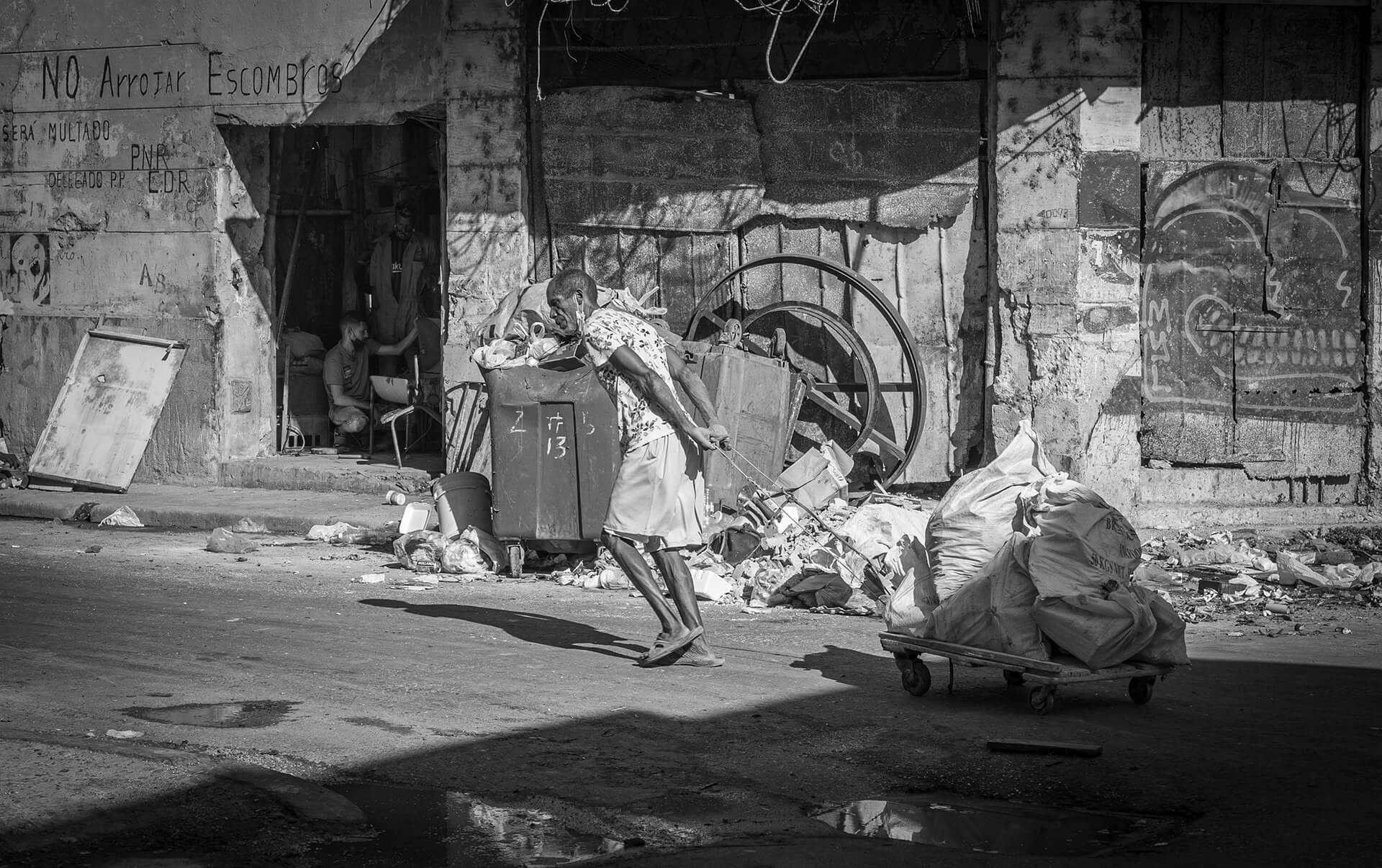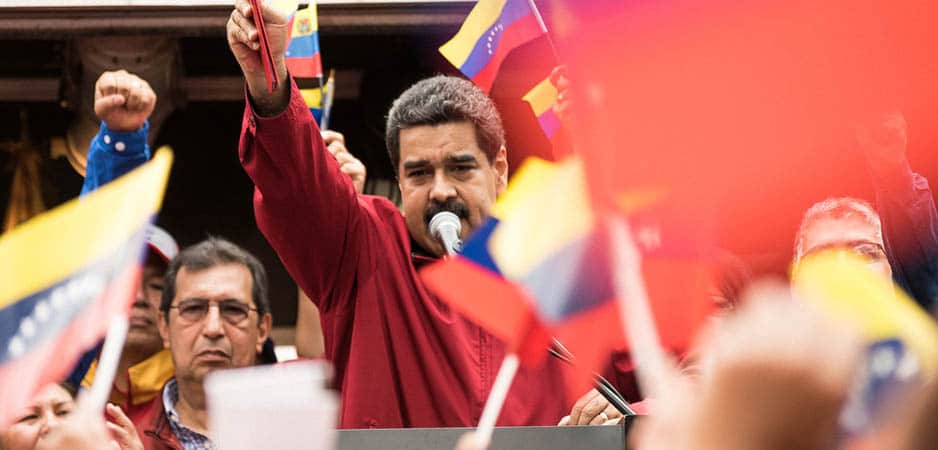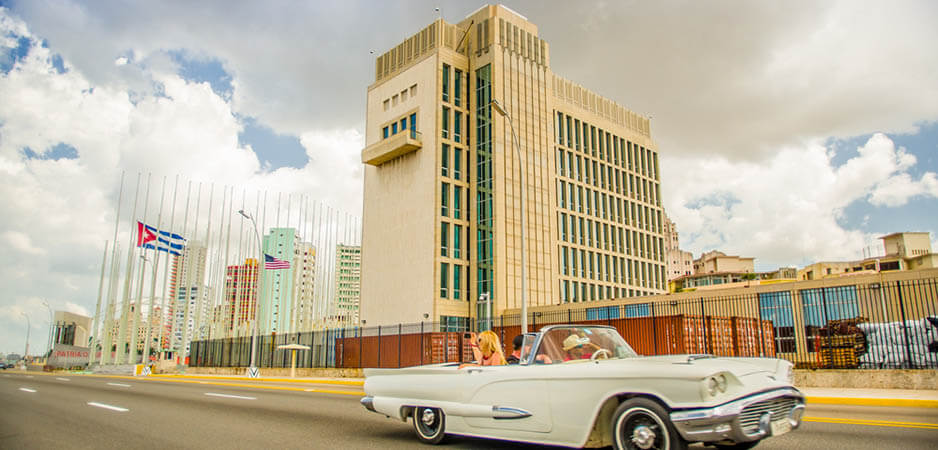The United States has for almost six decades pursued an embargo policy toward the government of Cuba with rare resolve. But there are few who would point to any success from this dogged approach. Instead, the specter of a common enemy to the north has entrenched the Communist government and cemented its restrictions on freedoms, while the Cuban people daily and deeply suffer from the economic choke hold of US sanctions.
I began a life-long understanding of the island nation decades ago in my graduate studies. Last December, I spent three weeks there, engaging with Cubans in many cities about their lives. I spoke with a range of demographics, from humble cabbies to senior Communist leaders. I was shocked at the depth of desperation of the people, who have no alternative but to queue up for exhausting hours each day to buy a few rationed basic foods. Most items are available only to those who receive currency from émigré relatives, and the US sanctions even block international donations of medical supplies.
Most people I met knew little but deprivation, yet harbored no disdain for US citizens. I never sensed anything but interest in and respect for this Americano. Whether such a charitable response is borne out of the memory of Fidel Castro’s legendary approach of brotherhood with Americanos, or the fact that so many must rely on overseas donations, the reality is that there has always been a wide-open door in Cuba for amicable Cuban-American relations.
The Strong Do What They Can and the Weak Suffer What They Must
Even prior to the COVID-19 pandemic, the UN estimated that the US embargo had cost Cuba $130 billion since 1962. This is a terrible cost for a tiny impoverished island. In last year’s UN General Assembly, virtually every one of 184 member countries voted in favor of a resolution to demand the end of the US economic blockade on Cuba. Contrary to its intentions, this de facto blockade does not much impact the government elites in Cuba. In spite of a professed socialist system, there is a small subset of Cubans with political leverage enjoying luxury. But, since the Cuban government can continue to point to a proximate enemy as the cause for suffering — especially since the misplaced policies of the Trump administration — it can avoid blame and the inequities persist.
I have long been familiar with the charity and sacrifices of the Cuban people. I worked alongside many Cubans during Haiti’s recovery from the 2010 earthquake. As a US Foreign Service officer, I worked in many Latin American countries and witnessedthe incredibly positive impact of the Cuban doctors and medics.
As a counterpoint, I retain insights into the perspective of Cuban-Americans from living in South Florida for many years. My father’s second wife was a Cuban-American who immigrated to the US in the 1960s. I would often listen to her excoriate Fidel Castro and hone my Spanish by tuning into Miami-based radio stations that regularly condemned the Cuban Revolution.
Over the years, Cubans have faced increasing and unhealthful privations. Obesity and diabetes caused by nutritional deficits are a growing cause of premature deaths that well exceeds those caused by COVID-19. Thousands of Cubans find no recourse but to make the life-threatening journey by land or sea to the US as refugees and end up becoming financial burdens to the US taxpayer. The number of Cubans arriving at the US-Mexico border is presently at the highest level in more than a decade.
Because the nation has found itself in a virtual state of war since the early 1960s, the authoritarian government was able to muffle the spontaneous cries for libertad last July by thousands in the streets of key Cuban cities quickly and expeditiously. Dissenters were arrested or exiled. Sham trials have followed since and arbitrary punishments meted out. Subsequent protests have, for the most part, been stymied for fear of reprisals. The Cuban people desperately yearn to be unshackled from both the blockade and their government — yet without bloodshed.
Joe Biden Reaches Out But Not Much
President Joe Biden recently made some helpful but limited removals of US embargo restrictions. The Wall Street Journal was not pleased. Yet the real trouble with Biden’s measures was not that they did too little, not too much. This was a huge missed opportunity. Biden could have improved bilateral relations in the context of Russia’s invasion and genocide of the Ukrainian people.
After additional US warfare materials arrived in Ukraine in early February 2021, Russia threatened to retaliate by moving troops or military equipment to Cuba. The US government could have revisited its approach to the Cuban government and reduced tensions. Innovation and vision were some of the few remaining practical options in this extremely dangerous situation. Removing the counter-productive US embargoes would have signaled to Russia constructive intentions regarding their allies, and the onus might have inclined V. Putin to likewise pull back the concerning troops on Ukraine’s borders. Such timely response would not have been a quid pro quo, but rather one of many positive effects of a fresh U.S. policy toward Cuba. Alas, the door was closed in February, tens of thousands have been killed, millions have been uprooted, much of the nation has been leveled, and utter famine from absent wheat crops confronts much of the developing world.
The visions and voices of thousands of long-suffering Cubans I encountered remain fixed in my memory. Yet, in spite of its proximity to the United States, the plight and misery of Cubans somehow remain veiled for most in the West. Cuba, as all marginalized nations throughout the world, must now confront impending famine and even mass starvation given disruption of grain production and exports from Russia and Ukraine.
When it comes to Cuba, I believe the Biden administration is now on the right track. But the administration must urgently implement more common sense political and economic solutions to the grave humanitarian crises caused by a counter productive, decades-long, and devastating US embargo of Cuba.
The views expressed in this article are the author’s own and do not necessarily reflect Fair Observer’s editorial policy.
For more than 10 years, Fair Observer has been free, fair and independent. No billionaire owns us, no advertisers control us. We are a reader-supported nonprofit. Unlike many other publications, we keep our content free for readers regardless of where they live or whether they can afford to pay. We have no paywalls and no ads.
In the post-truth era of fake news, echo chambers and filter bubbles, we publish a plurality of perspectives from around the world. Anyone can publish with us, but everyone goes through a rigorous editorial process. So, you get fact-checked, well-reasoned content instead of noise.
We publish 2,500+ voices from 90+ countries. We also conduct education and training programs
on subjects ranging from digital media and journalism to writing and critical thinking. This
doesn’t come cheap. Servers, editors, trainers and web developers cost
money.
Please consider supporting us on a regular basis as a recurring donor or a
sustaining member.
Support Fair Observer
We rely on your support for our independence, diversity and quality.
Will you support FO’s journalism?
We rely on your support for our independence, diversity and quality.






